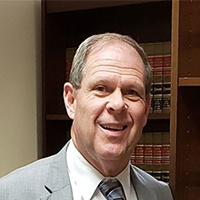Charlotte Court House Criminal Lawyer, Virginia
Sponsored Law Firm
-
 x
x

Click For More Info:
-
Tillotson & Martin, LLP
DWI/DUI Defense throughout the Entire Commonwealth of Virginia » view mapCriminal Defense Virginia’s Premier DWI/DUI Defense Firm
Michael C. Tillotson is the one to choose when it comes to DWI/DUI defense in Virginia.
800-878-1431
Mark Joseph Peake
✓ VERIFIED *Status is reviewed annually. For latest information visit hereMark Peake has been practicing law in the areas of personal injury, insurance defense, civil litigation, products liability, and criminal defense sinc... (more)
Sidney H. Kirstein
✓ VERIFIED *Status is reviewed annually. For latest information visit hereI first fell in love with the idea of becoming an attorney while watching fictional defense attorney Perry Mason on TV. Played by Raymond Burr, that c... (more)
Michael Glendon Henkle
✓ VERIFIED *Status is reviewed annually. For latest information visit hereGlen Henkle is a lifelong Virginian whose family has proudly called this state home for over 200 years. Although born in Richmond, he was raised and a... (more)
B. Leigh Drewry
Craig P. Tiller
Donald Carl Blessing
Michael Trent
Michael Thomas Trent
Preston Williams
R. Clinton Clary
FREE CONSULTATION
CONTACT Michael Tillotson Newport News, VA
Michael Tillotson Newport News, VA AboutTillotson & Martin, LLP
AboutTillotson & Martin, LLP Practice AreasExpertise
Practice AreasExpertise


